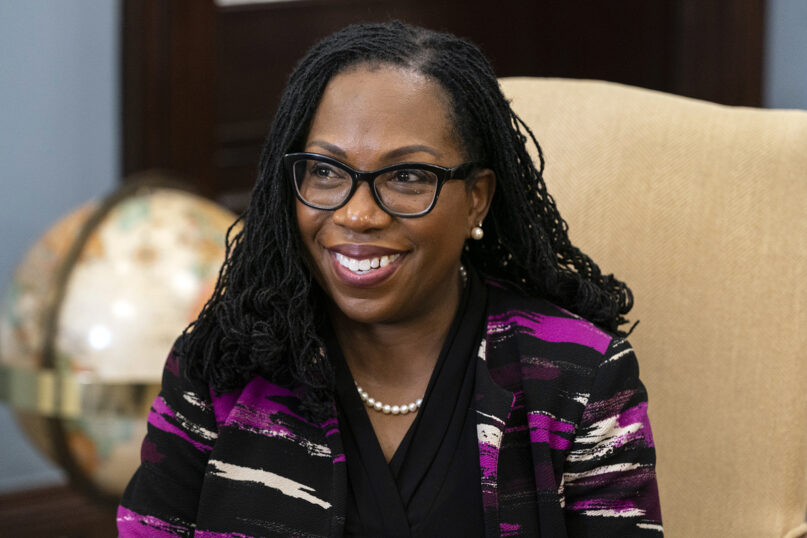(RNS) — In the Bible’s Book of Micah, the Hebrew prophet says, “And what does the Lord require of you? To act justly and to love mercy and to walk humbly with your God.”
These words sum up the essence of what it means to follow Jesus. As faith leaders in the Black, Asian American and Latino evangelical churches, we preach and teach this passage to understand the root of the Christian Gospel and the intersection of belief and right action. The marrying of these fundamentals of the faith is foundational to living a Christ-centered life.
For this reason, we, as evangelical Christians, support the nomination of Judge Ketanji Brown Jackson to the United States Supreme Court.
In her Supreme Court nomination speech last month, Jackson did not mince words regarding the prominent role faith plays in her life. “I must begin these very brief remarks by thanking God for delivering me to this point in my professional journey,” she said. “My life has been blessed beyond measure, and I do know that one can only come this far by faith.”
RELATED: Public funding of religious schools is coming. The first lesson is compromise.
As the first Black woman — and among the most eminently qualified individuals — nominated to the highest court in the land, she demonstrated a remarkable sense of what it means to “walk humbly with your God” by publicly professing the foundational role of her faith in her life.
Based on her career leading to this moment, this was anything but a surprise.
Raised by parents who both spent time as high school teachers, Jackson was shaped by an environment that not only supported her, but paved the way for her to pursue public service. In her nomination speech, she referred to this, saying, “I am standing here today by the grace of God as testament to the love and support that I’ve received from my family.”
Since graduating from law school, she has served as a judicial clerk, a federal judge, a member of the bipartisan U.S. Sentencing Commission and a public defender. Her experience of law enforcement comes not only from her professional life, but through close relatives who serve as police officers. She truly embodies what it means to “act justly and love mercy.”
She has further demonstrated this during her time on the bench by fighting to protect vulnerable people and communities, pursuing equitable treatment of those at the margins of society and the fair and impartial application of constitutional principles.
“In my faith tradition, it is said that to whom much is given, much is expected,” she told a group in 2020, according to USAToday. “I take that to mean that we who have benefitted have a responsibility to give back to our community in whatever way we can.”
Act justly, loving mercy and walking humbly with your God means exercising judicial impartiality. Jackson has both talked and walked the walk when it comes to living into the values at the core of her faith.
RELATED: Evangelicalism isn’t dying, and Catholics are going Republican
As our country continues to grapple with polarization, divisiveness and challenges on multiple fronts, we must ensure that the vacancy on the court created by Justice Stephen Breyer’s retirement is filled with someone who instills confidence in our legal system, someone whose judgment we trust because it is rooted in the kind of high moral standard Jackson has demonstrated at every phase of her life and career.
Jackson’s solid judicial temperament has convinced the U.S. Senate to confirm her to three previous appointments with bipartisan support. It is why we, faith leaders from diverse traditions comprising Americans from all political parties, urge the Senate to confirm Judge Jackson for a fourth time, with bipartisan support, to the Supreme Court.
(Dr. Barbara Williams-Skinner is co-convener of the National African American Clergy Network. The Rev. Hyepin Im is executive director of Faith and Community Empowerment. The Rev. Carlos L. Malave is coordinator for the Latino Christian National Network. The views expressed in this commentary do not necessarily reflect those of Religion News Service.)





